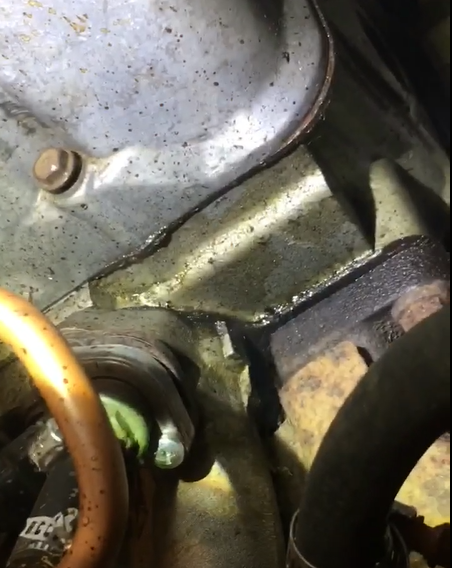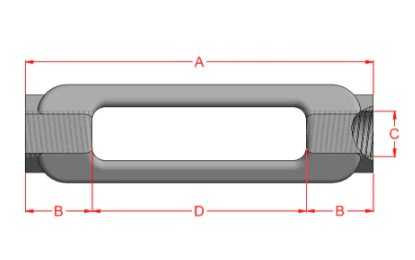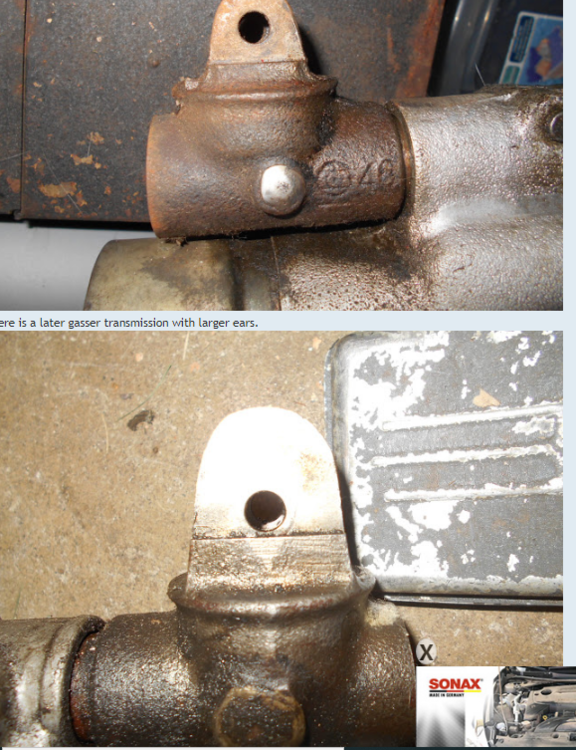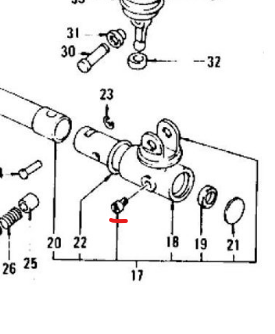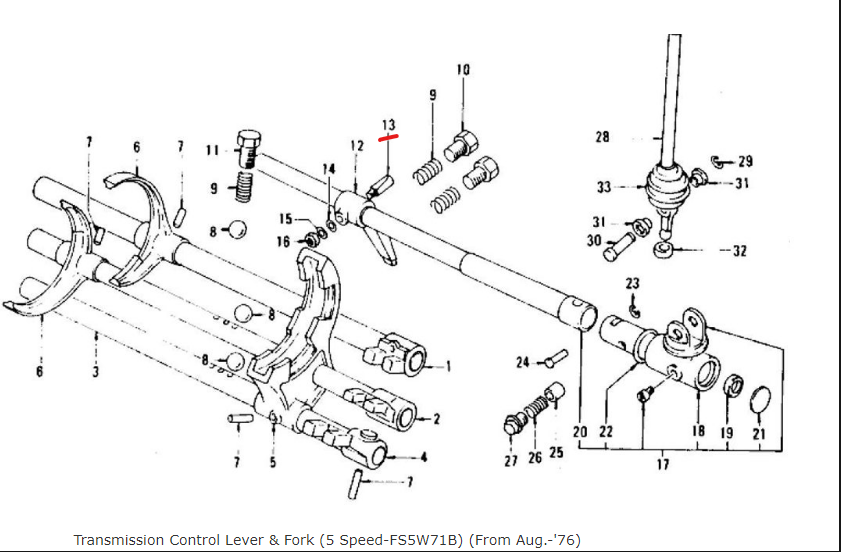Everything posted by Zed Head
-
chassis numbers and engine numbers
Search "zhome registry" on the site. But, kind of doesn't matter much since you won't be able to prove numbers matching without the plate.
-
280z Head Disassembly?
Could be an exhaust leak. things seem kind of wet there though. Why is the valve cover bolt so far up from the cover? Those need to be tight or you'll have a leak the cover gasket.
-
1978 5-speed transmission Tail-Housing Removal?
"Turnbuckle" popped in to my head when I was looking at your device. Maybe? Still need to support the shaft on the other side to keep it from bending. http://www.anchorboltexpress.com/5-8-x-6-turnbuckle-body/
-
280z Head Disassembly?
You posted the same video two times. High idle, smoky exhaust. Looks like a cold engine from the condensate/water dripping from the pipe. Since it's running you should still do what I suggested. In my opinion. You can have an exhaust leak without having an intake leak. And some exhaust leaks seal up when the engine gets hot. Edit - but with the idle so high it will be hard to diagnose. You need a warmed up engine.
-
Rust Advice 78 280z
Have you tried the others? If not, no foundation for your statement.
-
Rust Advice 78 280z
There's Naval Jelly. A standard rust remover. It brushes on. You could probably make your own home-built paste using vinegar and sawdust. Cheap. They're all just moderately strong acids with thickening agents. You could use a strong acid like muriatic acid but it would work very fast, create hydrogen gas, and corrode metal after the rust is gone. Plus burn the crap out of any skin it touches. Blind you if it gets in your eyes. It's basically battery acid in a bottle.
-
280z Head Disassembly?
If the white smoke appeared while you were "Seafoaming" it would be an exhaust leak. But there could still be an intake leak in that area. The way to test would be to start the engine and spray some carburetor cleaner at the spot where you saw the smoke. If the intake gasket is leaking the idle speed will change. Probably increase. Spray, listen, spray, listen. Confirm an intake leak first. You're right on the edge of creating a non-running car. Even changing the intake/exhaust gasket can be difficult, with broken bolts and ez-outs and drilling. Removing the head gets you in to timing chain issues, with the potential for dropping the chain and needing to remove the timing chain cover. Big hairy problems....
-
New guy needs help
This might help. https://www.hagerty.com/apps/valuationtools/1986-nissan-300zx
-
#1 Cylinder
Reset the drive quill for the distributor. You'll have to drop the oil pump. It's described in the Engine Mechanical chapter. The cam sprocket location marks are shown also, but they are probably fine. They don't have anything to do with what you're looking at with the plug wires. Or just drive it that way until you need to get in to the engine for some other reason.
-
'75 280z #6 cylinder acting weird
What was engine temperature for the first test compared to this recent one. My other comment had some thought behind it. These systems are notorious for running rich.
-
'75 280z #6 cylinder acting weird
All of your testing (except for my other comments below) indicates that the #6 injector is not opening at idle. It might just be too sticky to open quickly enough for the very low idle pulse duration. There's not much to an injector, a spring to close it and a solenoid to open it. Carb cleaner can't fix rust or corrosion or baked on deposits. The injectors get really hot after the engine is shut off. You could swap injectors and see if the problem follows the injector. Probably should have done that the first time. On the other hand, doing a lot of work to try to fix a diagnostic test doesn't make much sense, if the goal is to drive the car. Most EFI cars have a "missy" kind of idle due to the way they open, in batch mode. I'd be happy with a smooth idle and well-running engine. Is the #6 plug the same color as the others? If it's not opening the plug will be whiter. And, on the other other hand - I think that the idle get smoother on the EFI engines when they are running rich. There might be enough residual fuel floating around that disconnecting an injector doesn't have an effect. At idle there's a lot of backflow in the manifold. Might be that the real problem is running rich at idle. Not #6.
-
Removing Intake Manifold Heat Shield
How about removing the PCV valve itself? Not just the hose. It unscrews easily. Probably needs replacing anyway. Or cleaning.
-
1978 5-speed transmission Tail-Housing Removal?
How about your concept but in a "jaws-of-life" type mechanism? Tiny "mandibles of convenience".
-
What are the facts about 280z ECU compatibility and differences
Now that would have been a good video.
-
What are the facts about 280z ECU compatibility and differences
The engine will run on three cylinders. Somebody actually cut one in half and ran it that way, if you recall way back. The Kent Moore Analyzer manual has more info that might help understanding. There might be a pdf file on the site but in the meantime there's this web site, broken down by single pages. - http://datsunforum.com/efi-troubleshooting-kent-moore-j25400-analyzer/
-
What are the facts about 280z ECU compatibility and differences
Some of the ECU's have all of the pins but many are not connected to anything. There's been a discussions about it. Chalked up to manufacturing "efficiencies" or overstock or things along those lines.
-
What are the facts about 280z ECU compatibility and differences
You might check the PCB circuits in the ECU that are connected to the sensors that control fuel enrichment. Coolant and air temperature sensors, for example. The AFM pins. If I had it sitting in front of me I might just check continuity from the PCB trace to the pin at the connector, for starters. Broken solder joints at the connector have been found and fixed, in past threads. If those are solid, then the components at the ends of the traces. Depends on how far you want to dig in to it. Could be fun. Finding that it starts lean. too lean to keep running, is a big clue.
-
Fuse ratings for fusible link replacements
Your work might save some future wiring harnesses if people follow it. If somebody had time, and a pile of fusible links, and a power source, they could probably define an approximate equivalent, fusible link to maxi-fuse. Just for fun. But if you don't need the excess amperage, it makes no sense to have a higher rating.
-
1978 5-speed transmission Tail-Housing Removal?
Are you going to take the shaft apart to get to oil seal #19? I got rid of my pile of 5 speed parts or I'd have done it already. Nobody has really dug in to that possibility as another source of the oil in the shifter cavity.
-
1978 5-speed transmission Tail-Housing Removal?
@zKars has the parts to be sacrificed, if he was interested. I think.
-
1978 5-speed transmission Tail-Housing Removal?
Looks like it might be a rivet. I'll bet you could grind the head off of it and the end would come off. Nissan never planned for this much disassembly, I'll bet, Might be some good stuff in the thread I found when I was looking for the picture. https://forums.nicoclub.com/transmission-stuck-in-first-gear-but-shifter-is-in-neutral-t602912.html
-
1978 5-speed transmission Tail-Housing Removal?
You're there...
-
1978 5-speed transmission Tail-Housing Removal?
-
1978 5-speed transmission Tail-Housing Removal?
Actually that's a good find. Maybe that's the one that leaks, not #22. It would be #19 in the parts manual. There's an o-ring, and an oil seal. It looks like the end of the striker rod should come off, exposing that oil seal. Maybe you can disassemble it without removing the rod. http://www.carpartsmanual.com/datsun/Z-1969-1978/power-train/transmission-control/5-speed
-
1978 5-speed transmission Tail-Housing Removal?




